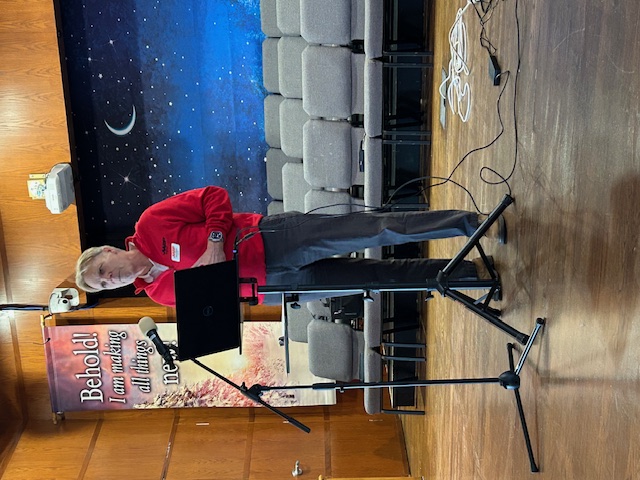AARP Hearing Center

Is it possible that living a life with meaning can help improve our mental and physical health as we age? To help answer this question, AARP Virginia sponsored a special screening and workshop for The Hidden Power of Purpose, a feature-length documentary narrated by Debbie Allen. This special screening was held on Jan. 11th at the Arcola Church in Dulles.
Dave Slupe, AARP volunteer community ambassador, opened the program by asking attendees: What gives you meaning in life? How you answer this question, he observed, directly correlates with your health and longevity, and can lead to a happier life. Stupe then introduced the film, The Hidden Power of Purpose, which is an AARP documentary that shows examples of people who have overcome tremendous challenges to pursue their passion for service. The film presents four individuals over age 50 who are making the world a better place through their purposeful lives. It also features insights from leading scientists and health experts, including Deepak Chopra and Sanjay Gupta, M.D., who explore the profound connection between living with purpose and improving health and longevity.
After the viewing of the film, Slupe provided the attendees with an interactive activity to connect with others in the audience and share personal experiences in discovering purpose in their lives.
AARP celebrates the extraordinary contributions of adults 50 and over who have found their purpose and are pursuing their passion to make a difference in the world through its Purpose Prize award. The Purpose Prize award recognizes people who use their life experience to create social change. To illustrate how the journey to find your purpose can help build a better world, Slupe introduced Jennifer Jacobs, a 2024 Purpose Prize winner, as the keynote speaker for the program. Jacobs is the founder and CEO of Connect Our Kids, which gives foster care teams advanced technology and tools to find families for children under their care.
Jacobs related the difficulties she had in finding her purpose, and then in founding a startup company to serve the foster care community. Her background includes an education at West Point and training as a nuclear engineer and military intelligence analyst. However, her passion was for child care and she left her career behind to establish Connect Our Kids. As a mother, she faced the problems of raising a family while starting a new company. As a woman, she had to carry these additional responsibilities in pursuing her purpose. Her story illustrates the personal cost of bringing about social change.
She was also clear about the difficulty of changing the institution of the foster care system. She asked how can kids in foster care develop a healthy parental relationship when the relationship with their foster parents is there because of money? She further asked her audience to consider the analogy of replanting a potted plant. Although the environment changes in the new pot, the plant’s roots remain the same. Her argument is that we should do everything possible to reconnect kids to their biological parents and to support their birth relatives. The results of her company’s work are told in the numbers. Her firm has served over 20,000 kids since its inception.
To conclude this program, AARP provided attendees with a 30-day journal to use for discovering their purpose.































































